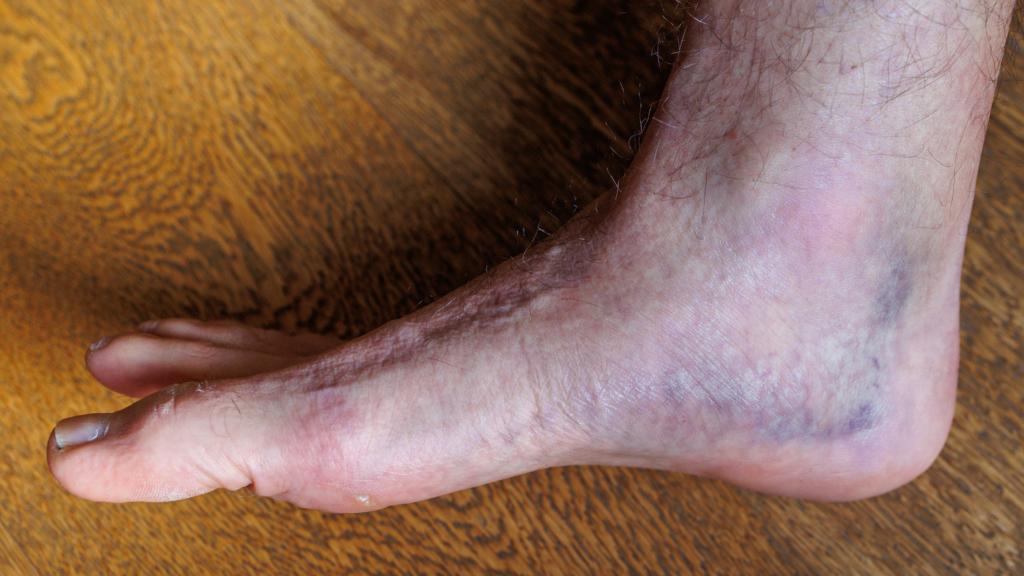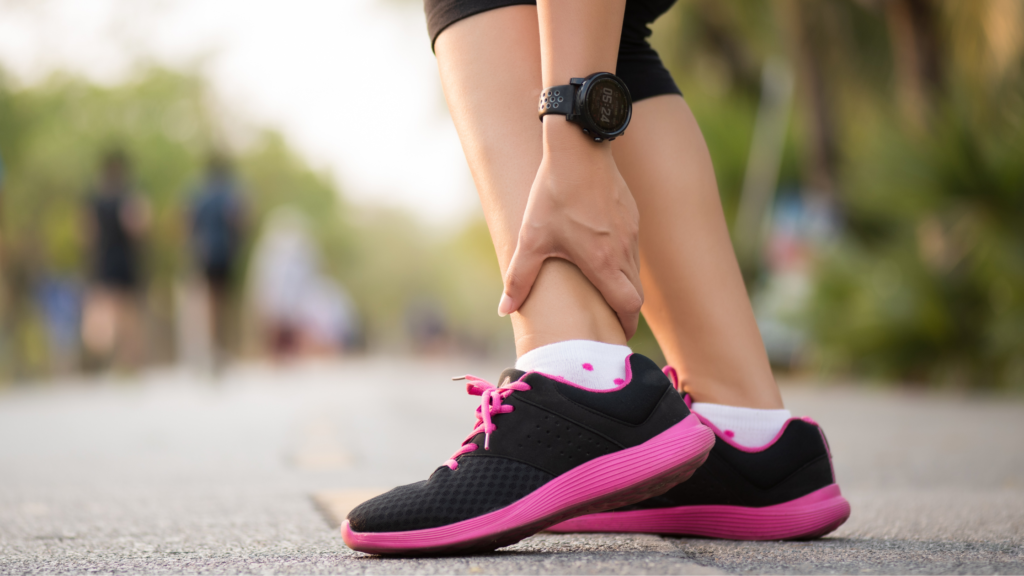Heel pain can bring your world to a halt, making even simple steps feel like a marathon. But you don’t have to suffer in silence! This guide explores common heel injuries, their causes, and effective treatment options to get you back on your feet.
Common Heel Injuries
- Plantar fasciitis: This inflammation of the plantar fascia, the ligament supporting your arch, is a leading cause of heel pain. It often feels sharp and stabbing, especially in the morning or after long periods standing.
- Heel spur: A bony protrusion that forms on the underside of the heel bone can irritate surrounding tissues, leading to pain. Heel spurs often develop alongside plantar fasciitis.
- Achilles tendinitis: Overuse or strain can inflame the Achilles tendon, which connects your calf muscles to your heel bone. This pain is usually felt at the back of the heel and worsens with activity.
- Tarsal tunnel syndrome: Compression of the tibial nerve along the inner ankle can cause burning, tingling, and numbness in the heel and sole of the foot.
Causes of Heel Pain
Several factors can contribute to heel pain, including:
- Repetitive stress: Activities like running, jumping, or standing for long periods can overuse the heel and lead to micro-tears.
- Improper footwear: Shoes with inadequate arch support or cushioning can put extra strain on the heel.
- Obesity: Excess weight adds stress to your feet and ankles, increasing the risk of injury.
- Tight calf muscles: Tightness in the calf muscles can pull on the Achilles tendon and contribute to heel pain.

Treatment Options for Heel Pain
The good news is that most heel pain responds well to conservative treatments like:
- Rest: Reducing activities that aggravate your pain allows for healing.
- Ice therapy: Applying ice packs to the affected area for 15-20 minutes at a time can reduce inflammation.
- Stretching: Regularly stretching your calf muscles and plantar fascia can improve flexibility and reduce pain.
- Orthotics: Custom-made shoe inserts can provide support and improve alignment, rthotics support the arches and reduce the tension on the plantar fascia, thereby allowing the inflamed tissue to heal.
- Dry needling : Releases these trigger points, alleviating pain and improving foot function.
- Physiotherapy: A physiotherapist will design a personalized stretching program to target tight calf muscles and plantar fascia, improving flexibility and reducing strain on your heel.
When to See a Physio
If your heel pain is severe, persistent, or doesn’t improve with home care, it’s crucial to consult a physiotherapist to properly diagnose the cause of your pain and recommend appropriate treatment, which may include:
- Physiotherapy: A targeted exercise program can strengthen muscles and improve flexibility to promote healing.
- Dry Needling: By targeting tight muscle knots, dry needling relieves pressure on the plantar fascia, reducing inflammation and providing immediate pain relief. Enhanced Mobility: Releasing tension in the calf muscles, foot arch, and heel improves overall foot function and comfort during daily activities.
- Surgery: In rare cases, surgery may be necessary to remove a heel spur or repair a torn Achilles tendon.
Preventing Heel Pain
By incorporating these tips into your routine, you can help prevent future heel pain:
- Maintain a healthy weight: Reducing weight takes stress off your feet and ankles.
- Custom Orthotics: Medical grade orhotics equipped with cushioning properties that provide shock absorption during activities like walking, running, or standing. This cushioning minimizes the impact on the heel and surrounding structures, making it an effective method for managing heel pain.
- Stretch regularly: Stretching your calves and plantar fascia daily can improve flexibility and prevent tightness.
- Listen to your body: Avoid activities that cause pain and gradually increase intensity during exercise programs.
Key Takeaway
Heel pain can be debilitating, but understanding the common causes and treatment options empowers you to take control of your recovery. Don’t hesitate to seek professional help if your pain persists. With proper care and prevention strategies, you can get back to enjoying an active life without heel pain holding you back.
SCHEDULE A FREE PHONE CONSULTATION
At Don Kelly Physiotherapy and Acupuncture, we are confident that anyone who walks through our doors can be helped with our care and commitment to your recovery.


